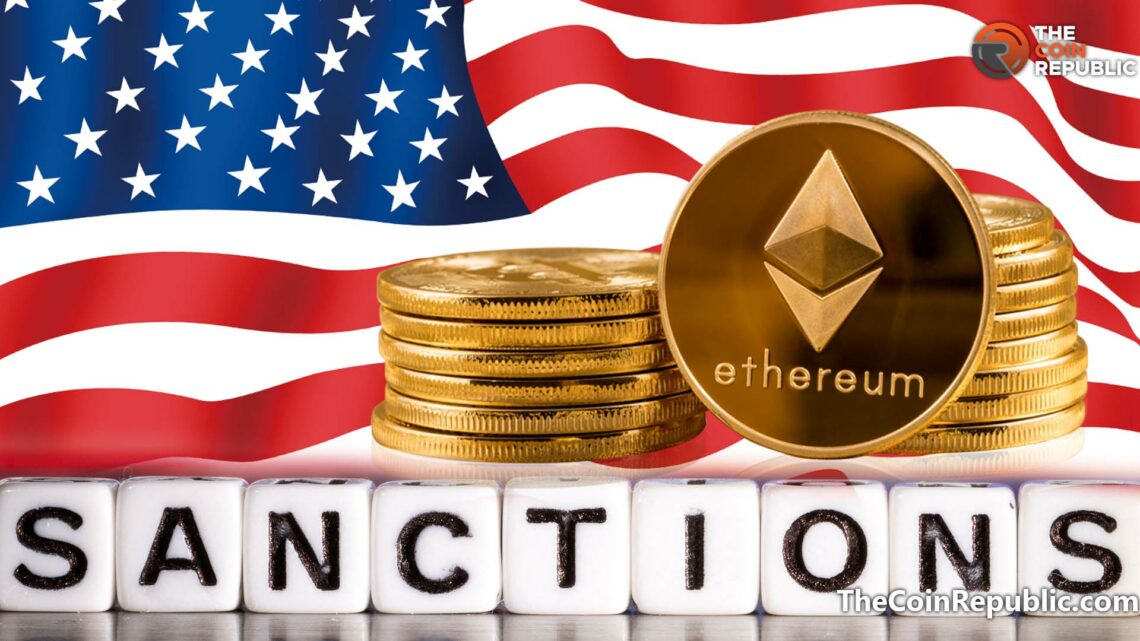- There are some reports that state that there may be some reason for concern in regard to censorship on the Ethereum network.
- A website, MEV Watch, represents that few MEV-Boost relays are regulated under OFAC and may censor specific transactions.
- Presently, more than 25% of Ethereum blocks are flexible with OFAC laws.
OFAC stands for the Office of Foreign Assets Control, a part of the U.S. Treasury Department that controls and foists sanctions. The department has made headlines in the crypto industry earlier, mainly due to the sanctioned Tornado Cash and addresses linked with it.
As mentioned on the website, “MEV-boost is a service that Ethereum PoS Validators have a chance to operate to expand their block production duties to the highest bidder.” Like this, there are seven significant MEV-Boost relays, out of which three don’t censor transactions as per the OFAC needs.
Like, those with adapt with OFAC needs will not add on any transactions that communicate with the Tornado Cash smart contract or any different sanctioned addresses. Expectedly, those in the crypto world have started to see at this growth with worry.
Almost one-fourth of all MEV-Boost relays are able to censor those transactions. Some have done estimations regarding to the number of blocks that are being censored, with a report revealing that “among validators who are selected to utilize an MEV-Boost relay, about 86% of blocks are being censored.”
GM 🌞 – Sept 29
— The Block Intern (@theblockintern) September 29, 2022
44% of all Ethereum validators are registered with the Flashbots MEV-Boost relay ⚡️🤖
86% of blocks produced by validators running MEV-Boost have been OFAC Compliant since The Merge 🚨
sources: https://t.co/lvVrcAK96a & https://t.co/oavYnF6XiW pic.twitter.com/5JHDn4KVx9
But, the report doesn’t mention that whether validators want to add those transactions, they will be included in the blockchain. There are teams that are working on being censorship resistant, like EigenLayer, that have offered an option. Sreeram Kannan, the founder of EigenLayer, kept his point about the solution on Twitter, speaking on permitting unutilized block space that will be filled by the block producer.
Yes that's what our proposed update for mevboost does: Allow the unused blockspace to be filled by the block producer. Due to 1559 there is always excess blockspace. https://t.co/cIZxkzdzx5https://t.co/NAs8kczW2A https://t.co/ePaDCnHfD9
— Sreeram Kannan (@sreeramkannan) September 29, 2022
The concern of the crypto communities
Social media got flooded with discussion on the matter, with a good part of the crypto community showing a lot of concern regarding censorship happening at that fundamental level. They have all invited for neutrality, at the same time also questioning for a protocol-level swap that stops that type of censorship from occurring.
Few have also questioned those operating a staking node to not devote towards censorship by way of asking them not to utilize the main MEV flash boats relayer.
if you are running your own staking node, please DO NOT USE the primary MEV #FlashBots relayer, and do not deposit with any entity who does
— DCinvestor (@iamDCinvestor) September 29, 2022
you're actively contributing to protocol censorship when it is not even clearly legally requiredhttps://t.co/Rbkkryds7s pic.twitter.com/Rv5VVWMTGz
Steve Anderson is an Australian crypto enthusiast. He is a specialist in management and trading for over 5 years. Steve has worked as a crypto trader, he loves learning about decentralisation, understanding the true potential of the blockchain.


 Home
Home News
News






